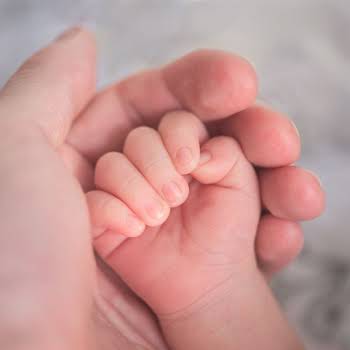The Lack Of Split Parental Leave Means We Are Stuck In Unequal Relationships
By Jessie Collins
29th Jul 2017
29th Jul 2017
In 2015, the then minister for children, Dr. James Reilly, as part of the childcare reform package, proposed to introduce a full year’s parental leave, divided between both parents, in whatever manner they wished. The proposal has vanished without a trace. Childcare, it seems, is not an election issue.
The original proposal would have brought us closer to, if not in line with progressive European countries. For instance, in Sweden parents are entitled to 16 months? paid parental leave between them. This can be split evenly, but both parents have to take at least three months of it each. Even the fact that men are obliged to take it is such a complete reversal of our current situation, where women get 26 weeks paid leave, and 16 weeks unpaid, while men were only just recently granted two weeks paid leave. There are so many issues surrounding the whole area, and so many red herrings trotted out whenever a move like this gets mentioned.
Will the man take it? That’s not the point of the legislation, it’s about them having the right to it.
Do men want it? Some do. Some don’t. But there are some women who don’t perhaps want to take off a full six months, not if their partner could be there instead. There are some women who are earning more than their partners and it makes more sense for them to keep that income coming in.
What I would argue though is that until both parties involved in bringing up a child can really walk in each other’s shoes, we are never going to get beyond the same parenting dynamic that has been going on for decades. You have to live the experience of leaving your job and being subsumed into the wholly other world that is bringing up a small baby – the terror, beauty, boredom, wonder and drudgery that all go into those early days, to understand it.
There are the real aspects of having to disengage on some level from your career brain, and fully engage your baby brain that freaks many women out. Not to mention the re-assimilation back into work being particularly scary, a fear that currently mostly only women here experience. We carry the full burden of being terrified of how our career will be affected by parenthood, of how we will cope with the magnitude and the responsibility, as though parenthood happens to us alone while our partners are considered exempt.
More than anything, it sets up a pattern that lasts potentially the entirety of our parenting life, not to mention informing our children’s attitude to parenting and their own partner later in life. Insisting that a woman is the only person who can look after a child in its first six months is a message that everyone gets loud and clear. She is the primary carer, first and foremost. In the eyes of the government, the state, the community, the child. It keeps women in that place where their children will go to them first when they get upset, why they want their mum above all others.
It robs them of the possibility of a dads more continuous and potent early influence, as well as their alternate approach to parenting. Understandably, many dads feel like a passenger in those early days. As important – and too often overlooked – is the effect on a couple’s relationship. One thing parenthood certainly does is challenge your sense of identity, never so much as when you are no longer working in an environment where you get praised for your work, and where no one gets sick on you regularly. If one half of a relationship loses their way, it can lead to resentment and frustration and given that you are both probably operating on about 15 minutes sleep, that’s an extra burden you don’t need.
More than likely too, because the mother has to take all of the early leave, she will be the one to?organise day care for when she goes back to work, a responsibility that on the whole, continues on for years it seems – following on to schools, activities and the children’s social life. The housework she has been doing on leave just becomes part of her other workload when she goes back to paid work. She is appointed chief emotional officer in those first few months, and it seems there is no option for a job share on that one.
It means we are all still stuck in the 1950s family set up, it’s just that women work now too.
It is striking that in our newly-appointed Taoiseach’s great vision for this country, this issue has been dropped. I really believe it is a life-changing move that would create a fundamental shift in our society for generations to come. Many women who have families now are wondering why their partners haven’t evolved to the point of sharing all the family duties equally. Nothing, other than perhaps their tired, beleaguered partner, is telling them that they should. I really hope this is set to change, if not for us, then for our daughters and our sons.























